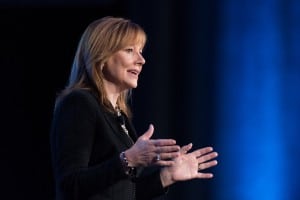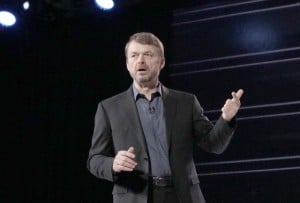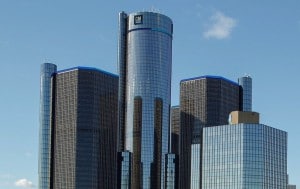
Lawyers will now be able to “accompany” GM CEO Mary Barra to her July 1 virtual meeting with FCA CEO Mike Manley.
(This story has been updated to include today’s decision from the appeals court.)
The meeting is on hold — for now.
The Sixth Circuit Court of Appeals today stayed a lower court ruling that would have required General Motors CEO Mary Barra and Fiat Chrysler Chief Mike Manley to meet July 1 to resolve GM’s lawsuit against FCA.
“In order to provide sufficient time to consider the matters raised in GM’s petition, and having considered the relevant factors, we conclude that a temporary stay is appropriate,” the court said in a filing.
GM said in a statement it looked forward to the appeals court’s review and decision, reported Reuters. Meanwhile FCA issued a statement saying it still believes the suit is “meritless” and asked for the appeals court to assign the case to a different judge.
(Judge orders GM, FCA CEOs to meet to resolve “waste of time” lawsuit.)
Last week, GM asked a federal appeals court to set aside a lower court’s order directing the the chief executive officers to meet – without lawyers – and settle a legal dispute in which GM claims FCA bribed it way to a competitive advantage in a key labor contract, the lower court judge amended his ruling.
On Saturday, Judge Paul Borman, a U.S. District Court Judge for the Eastern District of Michigan, amended his order forcing GM CEO Mary Barra and FCA Mike Manley to meet, allowing them to bring lawyers.

FCA CEO Mike Manley is still required to meet online with Barra, but FCA lawyers have still asked to dismiss the lawsuit altogether.
In a letter to the Clerk of the U.S. Sixth Circuit Court of Appeals, the lawyer handling the case for GM, Paul Clement of Kirkland & Ellis, said the amended order is still defective and reiterated GM wants Borman removed from the case.
“That order still requires the parties’ CEOs (and not subordinate officers with full settlement authority) to meet in person by July 1, still requires the CEOs to personally “report back” concerning their settlement efforts and to do so on the public record, and is still impermissibly premised on the view that unrelated crises and past bankruptcies justify a radical departure from the normal order,” Clement said in his letter.
In a petition filed with the sixth circuit on Friday, GM lawyers had argued Borman’s original order is “unprecedented” and a “profound abuse of the power and the critically important, but essentially limited, office of the federal judiciary.”
The petition filed by GM/s lawyers attacking Borman’s original order also maintained the judge overstepped his authority. “It is not within the power or properly limited office of an Article III judge charged with impartially adjudicating a federal cause of action Congress deemed worthy of judicial resources to label that action a ‘distraction.’”
(General Motors sues Fiat Chrysler, claims bribery of UAW cost it billions.)
Lawyers further argued the judge cannot order the CEOs of two major companies “personally, immediately, and without the aid of counsel to meet.” They also noted Borman also couldn’t further order them to report to the court on their efforts to resolve complex litigation that the court deemed a “waste of time and resources” that could be better put to “this country’s most pressing social justice and health issues,” GM’s petition said.
Lawyers for FCA, as they are allowed to do under the Federal Rules of Civil Procedure, have asked Borman to dismiss the original lawsuit and will undoubtedly re-iterate its arguments in its briefs.
GM basically claims it was harmed by FCA corrupt labor practices that helped FCA obtain benefits and advantages drove up GM costs and otherwise render it less competitive than FCA According to GM, the FCA conspired with certain UAW leaders in connection with 2015 collective bargaining agreement in an effort to GM and force a FCA/GM merger by imposing more than a billion dollars in costs on GM.
In addition, GM’s complaint noted that Alphons Iacobelli, a former FCA vice president of labor relations, who pled guilty to violating federal labor law two years ago, agreed that he and others at FCA made illegal payments as part of “a corporate policy to buy good relationships with UAW officials,” which they believed would lead to benefits, concessions, and advantages over GM in collective bargaining, GM’s petition noted.
FCA had no immediate comment on GM’s appeal to the sixth circuit but it has contended since GM first filed the lawsuit back in November that it was “without merit,” and noted that Borman’s original order directing Barra and Manley meeting by July 1 still stands.
(FCA getting ready to ask court to dismiss GM lawsuit.)
The lawsuit, in part, is an outgrowth of a long running investigation in corruption with the United Auto Workers in which 14 people, including three FCA executive, 10 UAW officials and the widow of former UAW leader close to former FCA CEO Sergio Marchionne, have pled guilty to various federal criminal charges.

